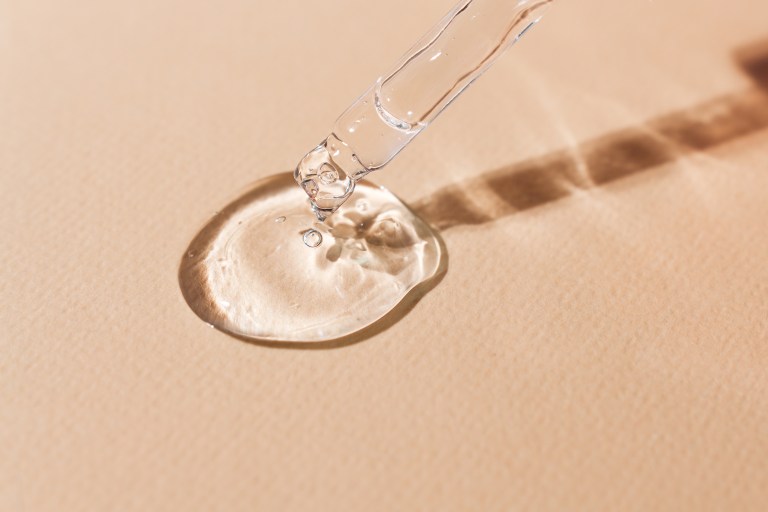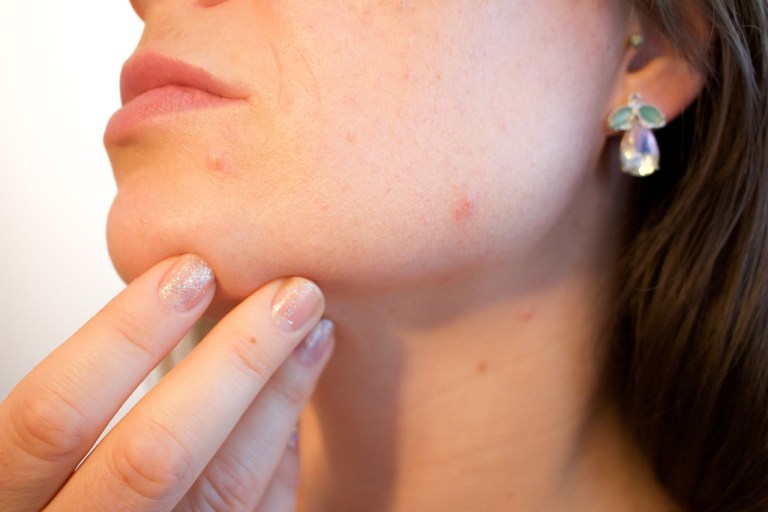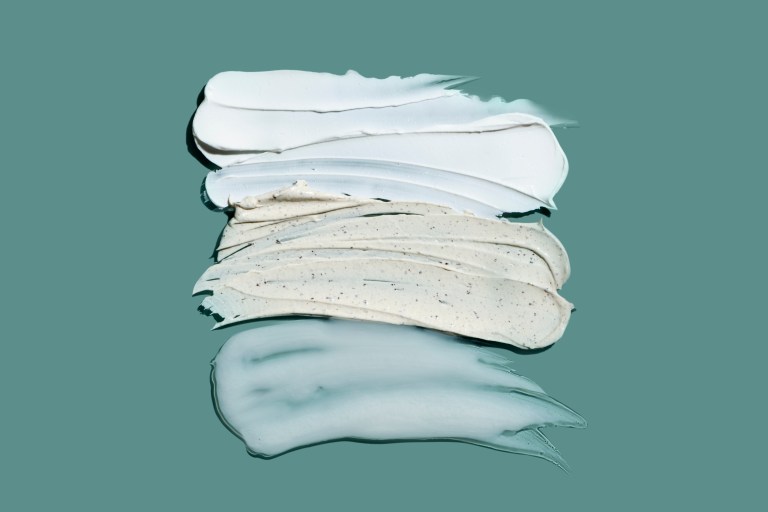Is Hyaluronic Acid Good for Acne?

Acne is a common yet challenging skin condition, especially because it can impact people of all ages and causes unwanted redness and pimples on our faces and body.
Acne can significantly impact us emotionally and psychologically; improving it or having acne-free skin may also help improve one’s mental health.
With many skin care products and ingredients, choosing ones that are tailored to your needs is essential in building a comprehensive routine that can fight acne.
In this post, we will uncover whether hyaluronic acid is good for acne-prone skin, how it works, its benefits, potential side effects, other ingredients that work well alongside hyaluronic acid, and how to layer it into a skincare routine.
What is hyaluronic acid?
Before we can dive into the benefits of hyaluronic acid, we need to understand what it is. Hyaluronic acid is a naturally occurring substance found in the human body and our skin, mainly known for retaining moisture and keeping our skin hydrated.
It’s popular in skin care because hyaluronic acid draws moisture into our skin, making it look plumper and younger without causing greasy or oily skin.

Types of hyaluronic acid
Hyaluronic acid is an ingredient used widely in the skincare and cosmetic industry. Here are a few common hyaluronic acid products:
Hyaluronic acid moisturizer and topical serum
Generally the best type of hyaluronic acid for acne concerns, as they can be easily incorporated into a skincare routine and won’t clog follicles.
Hyaluronic acid gels and masks
These can be more concentrated forms of hyaluronic acid and can be good for acne, but they must not contain other ingredients that can irritate or clog follicles.
Hyaluronic acid injections (dermal fillers)
These are not relevant for acne; hyaluronic acid gel can be used as a medical-grade injection into the skin to plump and smooth wrinkles, contour the face, and improve skin elasticity.
For this article, we will be referring to the hyaluronic acid product of moisturizers and serums.
Understanding Acne and Oily Skin
What is acne?
Acne is a chronic condition that results in spots and pimples on the face and body, including common places such as the back, neck, chest, upper arms, and shoulders. It’s a common and challenging skin condition, and research shows that it’s estimated to affect 9.4% of the global population, making it the eighth most prevalent disease globally.

How does acne develop?
Acne forms when pores and hair follicles are clogged with sebum, an oily substance that usually keeps our skin moisturized but can cause acne when overproduced; it’s common for people with oily skin types.
When these follicles or pores become plugged with sebum and dead skin cells, bacteria can grow inside and cause inflammation and pimples.
What are the different types of acne?
Acne is an umbrella term for several types of blemishes and skin conditions. Research shows that these include:

Whiteheads: Closed comedones, lesions that form from clogged pores due to excess sebum production, that have a white appearance as the pore is covered by a layer of skin
Blackheads: Open comedones, blocked pores that remain open at the skin’s surface, making them appear black in color due to oxidation of sebum and dead cells.
Papules: Small, red, and raised bumps that can feel sore from severe inflammation.
Pustules: While similar to papules, pustules are also filled with pus and generally have a white or yellow center with a red base.
Nodules: Large, painful lumps that are deep within the skin.
Cysts: Large, pus-filled lumps that resemble boils and are often the most severe form of acne.
In addition, severe acne can leave behind acne scars, permanent textural changes, and skin indentations due to significant collagen damage.
Other factors that can affect acne
There are often other factors associated with acne that can cause the condition to worsen. These include the following:
Hormonal fluctuations: Androgens can cause the production of more sebum, leading to acne. This is common during hormonal periods that an individual may go through, such as puberty, pregnancy, and during menstruation.
Diet: While more research is needed, diet may play a role in the development of acne. According to a 2016 study, foods with a high glycemic index, such as sugars and carbs, may worsen acne.

Medications: Some medications, such as hormones or lithium, can worsen acne.
Is hyaluronic acid good for acne prone skin?
While topical hyaluronic acid alone does not have active ingredients that directly treat acne or acne scarring, it’s primarily beneficial as it’s a hydrating skincare product that generally does not cause irritation or inflammation.
Below are the benefits of using hyaluronic acid to help us understand the answer to the question, “Is hyaluronic acid good for acne:”

Great for skin hydration
Hyaluronic acid, or HA, is a humectant, meaning it can retain moisture in the skin. This is necessary for skin health, and having well-moisturized skin can help regulate the overproduction of oil, a leading cause of acne.
Reduces irritation and redness
Acne is usually sensitive and easily irritated; hyaluronic acid acts as a soothing agent that can help irritated skin due to its ability to bring hydration.
Does not clog pores
Hyaluronic acid is non-comedogenic, which means it’s not known to cause clogged pores, making it an excellent option to hydrate skin without leading to more acne breakouts.
Compatible with other treatments
Hyaluronic acid can generally be used alongside other acne solutions, such as retinoids, and can help offset dry skin, redness, or irritation from these treatments.
Potential side effects and risks
Hyaluronic acid is generally safe and well-tolerated, though some individuals with sensitive skin may experience mild irritation or allergic reactions.
Hyaluronic acid is also generally considered safe during pregnancy as it’s a naturally occurring substance in the body. However, it’s best to consult a dermatologist when using new products or patch testing on a small area of skin to watch for any reactions your skin might have.
Other ingredients that can be paired with hyaluronic acid serum for acne

A few ingredients and skincare products may be paired with hyaluronic acid to help treat acne or acne scars. While the ingredients listed below may help with acne, it’s important to note that using too many at once may cause irritation and over-exfoliation. Consult a dermatologist for a tailored skincare regime for your treatment needs.
Salicylic Acid
This beta-hydroxy acid, or BHA, can help exfoliate the skin, unclog pores, and reduce inflammation, which is beneficial in clearing existing acne and preventing new breakouts.
Niacinamide
Niacinamide can help improve the appearance of large pores and uneven skin tones as it helps treat redness and irritation associated with acne.
Retinoids
Retinoids, such as over-the-counter Retinol or prescription Tretinoin, are derivatives of Vitamin A that promote the shedding of dead skin and the surfacing of new skin. Not only does this help with anti-aging, but it also helps acne and the appearance of acne scars by unclogging pores and regenerating skin cells.
AHAs or Alpha Hydroxy Acids
AHAs such as glycolic acid and lactic acid exfoliate the skin, meaning they remove dead cells and reveal new smooth skin, which can be helpful for mild cases of acne.
Benzoyl Peroxide
Benzoyl Peroxide can kill bacteria that cause acne and help unclog pores; it’s a common ingredient in acne solutions but can dry out the skin. Pairing it with hyaluronic acid is beneficial for balancing out this dryness.
How to layer topical hyaluronic acid with other acne treatments

Properly layering hyaluronic acid in your skincare routine can ensure you get the best benefits from each product. Here’s how you can incorporate it:
Steps to Use Vitamin C Serum
Below are the complete steps on how to use Vitamin C serum in your morning routine:
1. Gently cleanse your skin
Start with a gentle cleanser, or consider using a cleanser with salicylic acid or benzoyl peroxide to help with acne
2. Apply a toner
Use a toner to restore the skin’s pH balance after cleansing
3. Use an acne treatment or serum
Apply your acne treatment, whether it’s prescription or over the counter; this could be a serum with retinol, or another active ingredient
4. Apply a topical Hyaluronic Acid serum
Use hyaluronic acid at this step to lock in hydration without clogging any pores
5. Use retinol (optional)
If you’re using a retinol product, use it in the evening as a last step before moisturizing.
6. Moisturize
Apply a non-comedogenic, non pore clogging, and oil-free moisturizer to prevent dry skin
7. Finish with a sunscreen
In the morning, always finish with SPF, even if you plan to stay indoors.
While hyaluronic acid is not meant for treating acne or acne scars directly, it can benefit acne-prone skin in many ways. Hyaluronic acid helps keep the skin hydrated and less irritated and pairs well with other active ingredients that can more directly treat acne, such as retinoids or exfoliants.
Acne is a complex skin concern, with effects ranging from psychological to physical irritation and redness to the skin and body. Other factors may contribute to the root cause of acne, such as hormonal changes, stress, diet, and medications, so it’s essential to consult a medical professional to create a plan tailored to treat acne for your specific needs.
Hyaluronic acid helps keep your skin looking fresh and hydrated and has many benefits for acne-prone skin. Adding hyaluronic acid to your acne treatment routine can help offset irritation and dryness for healthy skin.
Sources:
We aim to provide accurate, data-based, and evidence-based information. Below are reputable sources, research studies, and insights referenced in this post. These aren’t just to validate the claims in this blog post; they’re also linked here if you want to dive deeper into each scientific topic. When you read our content, we hope you feel confident knowing it has been researched and validated to keep our information reliable.

